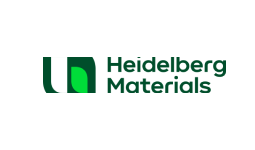 Electronic Invoicing Became Mandatory in the Kingdom of Saudi ArabiaHere's why, in these circumstances, Comarch e-Invoicing is the go-to document exchange platform
Electronic Invoicing Became Mandatory in the Kingdom of Saudi ArabiaHere's why, in these circumstances, Comarch e-Invoicing is the go-to document exchange platform

The e-invoicing process called FATOORA applies to taxable persons who are residents in the Kingdom of Saudi Arabia, as well as to the customers or any third parties who issue a tax invoice on behalf of a taxable person who is a resident in the Kingdom according to the VAT Implementing Regulation.
The first phase of mandatory electronic invoicing was implemented on December 4, 2021, when the obligation was imposed on companies to issue invoices and simplified invoices (used in B2C relations) in electronic form. The aim of the second phase, which started on January 1, 2023, was integration, enabling the sending of e-invoices. Its completion is planned for 2024.
 2023
2023The first wave companies that are obliged to connect to ZATCA are those based on the revenue subject to VAT for 2021 exceeding (3 billion) SAR
Taxpayers obliged to connect to ZATCA have revenues subject to VAT surpassing SAR 0.5 billion
Taxpayers obliged to integrate their e-Invoicing systems with the FATOORA platform are those with VATable income exceeding 250 million Saudi Rials
Taxpayers obliged to integrate their e-Invoicing systems with the FATOORA platform are those with VATable income exceeding 150 million Saudi Rials
Taxpayers obliged to integrate their e-Invoicing systems with the FATOORA platform are those with VATable income exceeding 100 million Saudi Rials
 2024
2024Taxpayers obliged to integrate their e-Invoicing systems with the FATOORA platform are those with VATable income exceeding 70 million Saudi Rials
Taxpayers obliged to integrate their e-Invoicing systems with the FATOORA platform are those with VATable income exceeding 50 million Saudi Rials
Taxpayers obliged to integrate their e-Invoicing systems with the FATOORA platform are those with VATable income exceeding 40 million Saudi Rials
Taxpayers obliged to integrate their e-Invoicing systems with the FATOORA platform are those with VATable income exceeding 30 million Saudi Rials

All taxable persons (excluding non-resident taxpayers) and third parties issuing tax invoices on behalf of a taxpayer that is subject to VAT are obliged to send e-Invoices.

It is required to implement security measures in the form of an electronic seal, which is created using cryptographic algorithms.

Starting with the Integration phase, the invoice must be in XML format in order to be shared with the authority using the API for clearance and reporting.

Electronic invoices may be stored in a server on-premises in the KSA or in the cloud according to the provisions in VAT Law, VAT Implementing Regulation, E-Invoicing Regulation and resolutions and all other relevant Laws in KSA.
We have 20+ years of experience in carrying out various EDI, e-invoicing, and other document exchange projects around the world. In those years, we have successfully connected more than 130,000 entities from over 60 countries.
Full compliance with the latest data exchange regulations and modern data transfer standards
Applying new technologies and IT solutions in order to streamline workflows and automate activities and procedures
Tailor-made solutions based on processes specific to each company – own road map and a suitable pace of changes
Highest level of security for all sensitive and important company data
For the generation phase (December 4th 2021), there is no specific format required to generate and store the e-Invoices. Starting with the Integration phase, the invoice must be in XML format in order to be shared with the authority using the API for clearance and reporting.
ESAL is a national platform for e-invoicing exchange in Saudi Arabia.
The supplier is responsible for the accuracy of the invoices issued, and for implementing security measures and adequate controls to prevent tampering with records stored electronically. It can be done by an electronic stamp which is created via cryptographic algorithms.
Persons subject to the E-Invoicing Regulation may store their electronic invoices in a server on-premises in the KSA or in the cloud as per their solution requirements and storage requirements, and according to the provisions in VAT Law, VAT Implementing Regulation, E-Invoicing Regulation and resolutions and all other relevant Laws in KSA.
E-invoicing has been obligatory in Saudi Arabia since December 4th, 2021.
All taxable persons (excluding non-resident taxpayers) and third parties issuing tax invoices on behalf of a taxpayer that is subject to VAT are obliged to send e-Invoices.

Make sure your business meets international standards with the Comarch e-Invoicing platform, trusted in more than 60 countries. Enjoy hassle-free integration and continuous compliance updates.
























